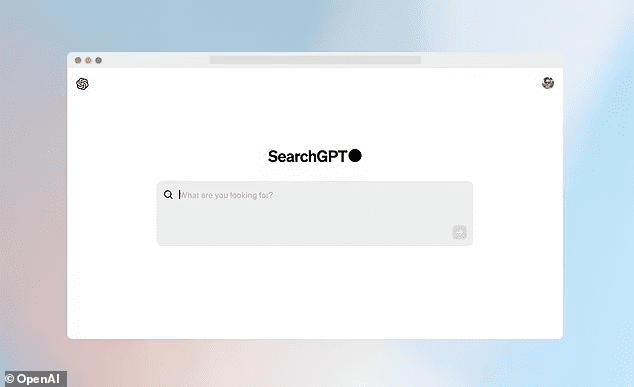
The vast expanse of the internet can be a treasure trove of information, but sifting through it to find what you need can be a frustrating and time-consuming process. OpenAI’s SearchGPT prototype aims to revolutionize this experience by combining the power of AI with real-time web information, making your search journey faster, easier, and more efficient.
This article delves into SearchGPT, exploring its functionalities, core principles, and how it fosters a collaborative environment for both users and publishers.
A Search Revolution:
Traditionally, searching the web involves navigating through multiple search terms and websites, often leading to irrelevant results. SearchGPT seeks to bridge this gap by leveraging the conversational capabilities of OpenAI’s AI models alongside up-to-date information from the web. This innovative approach allows you to ask questions in a natural, conversational format, receiving direct and concise answers with clear links to relevant sources.
Imagine having a conversation with a knowledgeable friend who not only answers your questions but also points you towards helpful resources for further exploration. SearchGPT aspires to replicate this experience in the virtual world.
Designed with Clarity in Mind:
SearchGPT prioritizes delivering clear and concise answers to your queries. It fetches the latest information from the web and presents it in a readily understandable format, eliminating the need to navigate through mountains of text. Additionally, SearchGPT meticulously cites its sources, providing you with links to the original websites where you can delve deeper into the subject matter.
This transparency not only strengthens the credibility of the information presented but also empowers you to explore diverse perspectives and enrich your understanding.
Building Bridges with Publishers:
OpenAI recognizes the critical role publishers and creators play in maintaining a thriving online information ecosystem. SearchGPT is designed to foster a win-win situation for both users and publishers.
- User Discovery: SearchGPT actively promotes user discovery of high-quality content from reputable publishers. By prominently featuring citations and links throughout the search results, users are directed towards valuable websites.
- Enhanced User Experience: SearchGPT utilizes a conversational search interface, making the search process more interactive and engaging. This fosters a deeper connection with online content and facilitates deeper dives into specific topics.
- Empowering Publishers: OpenAI is committed to creating a framework that empowers publishers by providing them with control over how their content appears in SearchGPT searches. Publishers will have the option to opt out of generative AI training while still having their websites surface in search results. Additionally, they will have access to tools to monitor and manage their presence within SearchGPT.
This collaborative approach ensures that all stakeholders benefit from the AI-powered search revolution.
Looking Ahead:
OpenAI is continuously refining SearchGPT, with a focus on improving areas like local information search and integrating e-commerce functionalities. They also intend to gather valuable feedback from both users and publishers during the prototype phase. This feedback will play a crucial role in shaping the future of SearchGPT and its eventual integration with ChatGPT.
How to Get Involved:
If you’re intrigued by the prospect of a more intuitive and efficient search experience, sign up for the SearchGPT waitlist and be among the first to experience this revolutionary search prototype. Together, let’s explore the future of search with OpenAI’s SearchGPT!








